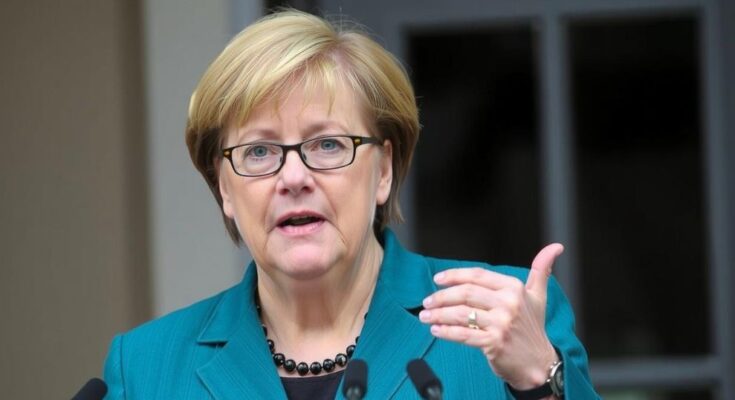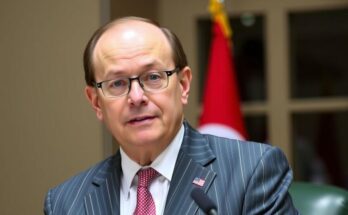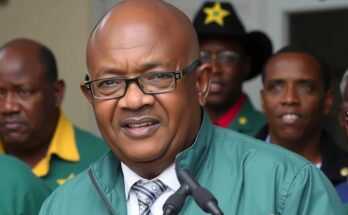German President Frank-Walter Steinmeier has dissolved parliament and scheduled an early election for February 23 due to the collapse of Chancellor Olaf Scholz’s coalition. This decision is influenced by ongoing debates over immigration, a recent violent attack, and the need for political stability. The conservative CDU/CSU leads polling while the Social Democrats lag significantly. The upcoming elections pose challenges such as economic instability and security concerns.
German President Frank-Walter Steinmeier has officially dissolved the parliament and confirmed February 23 as the date for an early general election, following the recent breakdown of Chancellor Olaf Scholz’s government. This coalition collapse stemmed from internal divisions regarding strategies to revitalize Germany’s economy amidst ongoing discussions about security and immigration issues, particularly highlighted by a tragic car attack at a Christmas market in Magdeburg, resulting in several fatalities and injuries.
In light of these developments, President Steinmeier emphasized the necessity for “political stability” and urged for a campaign conducted with “respect and decency.” He also expressed concerns regarding potential foreign interference in the electoral process, particularly via social media platforms. Discussions surrounding immigration policies have intensified, with the conservative CDU/CSU party currently leading in polls and advocating for stricter measures. Meanwhile, Scholz’s Social Democrats are trailing significantly in voter support.
Following the internal conflicts that culminated in a lost confidence vote, Scholz will serve as a caretaker chancellor until a new government is established, which may take several months. Significant challenges await the next government, including navigating economic instability, addressing ongoing conflicts in Ukraine and the Middle East, and tackling urgent issues such as climate change and infrastructure decay. Both major parties share goals of supporting Ukraine and invigorating Germany’s economy, yet differ in their proposed approaches to these challenges.
This article addresses a critical moment in German politics as it reports on President Frank-Walter Steinmeier’s decision to dissolve parliament and facilitate an early election. This decision arises from the collapse of Chancellor Olaf Scholz’s coalition government, exacerbated by public safety issues marked by a recent violent incident. The political landscape is complicated further by rising concerns over immigration, economic policy, and security, particularly in a Europe grappling with internal strife and external threats. The upcoming election is positioned as a pivotal moment for the country’s future, necessitating a focus on civil discourse and respectful political engagement.
In sum, the upcoming election on February 23 represents a significant juncture for Germany as it navigates through a tumultuous period marked by political instability, public safety concerns, and pressing economic challenges. The need for a coalition that can effectively address these myriad issues is paramount. As President Steinmeier aptly noted, the campaign must prioritize integrity and respect to ensure a democratic process free from the divisive elements that threaten societal cohesion.
Original Source: www.elpasoinc.com




